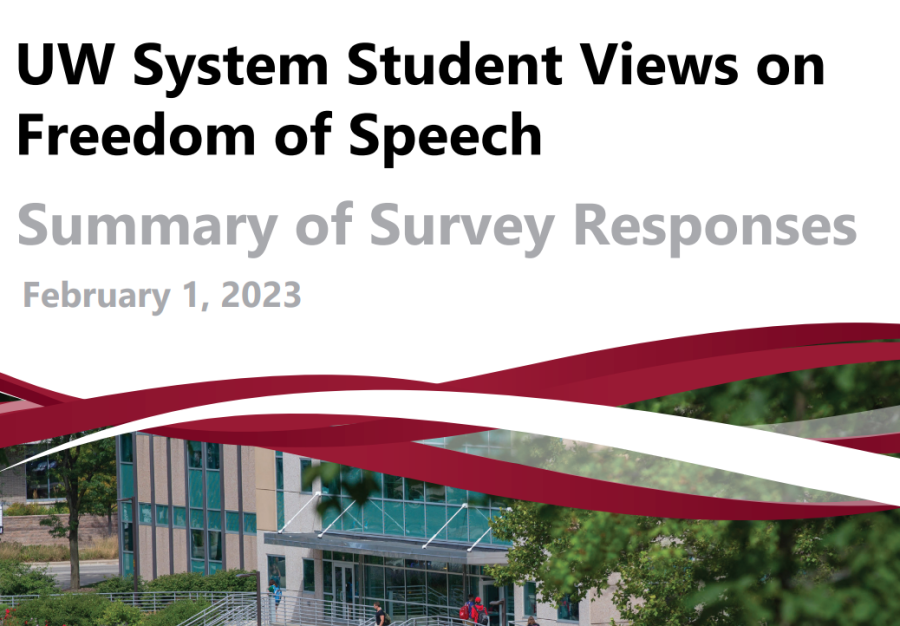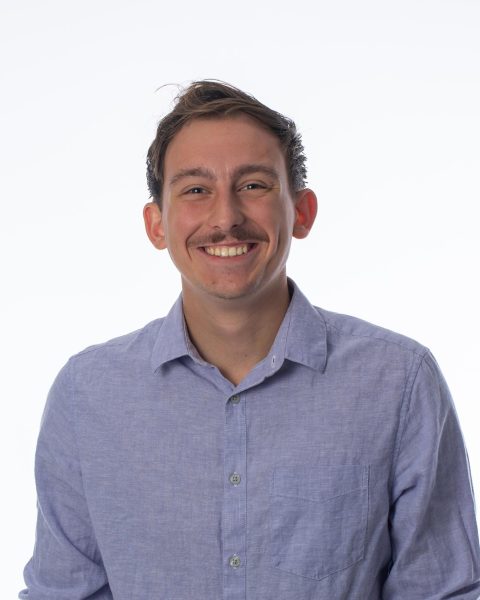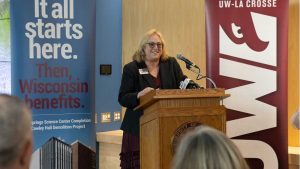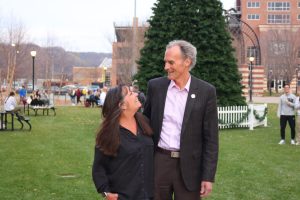Explained: Student views on free speech survey results
February 10, 2023
“Congress shall make no law respecting an establishment of religion, or prohibiting the free exercise thereof; or abridging the freedom of speech, or of the press; or the right of the people peaceably to assemble, and to petition the Government for a redress of grievances.”
These words from the United States Constitution protect Americans’ freedom of speech, yet have also been a contentious topic on college campuses nationwide throughout the years.
On Thursday, Feb. 2, the University of Wisconsin-La Crosse (UWL) Chancellor Joe Gow sent a campus-wide email releasing the results of the UW system student views on freedom of speech survey, which was sent out during the fall semester.
According to the study, “The goal of this research is to explore and describe [UW system] students’ knowledge of the First Amendment rights connected to free speech, as well as their attitudes about viewpoint diversity and their experiences with free expression and self-censorship at UW universities.” All thirteen UW-comprehensive universities participated in the survey.
UWL Assistant Professor James Szymalak said, “The survey largely confirmed expectations, both positive and negative. Things are neither as bad concerning ‘indoctrination,’ nor as good concerning student understanding of speech rights. There will always be areas for improvement, and I hope administrators and legislators support that progress, and not merely cherry-pick data points for their political purposes.” Szymalak is also the UWL campus coordinator for the Menard Center for the Study of Institutions and Innovation (MCSII).
He said, “UWL had the second-highest percentage of students in the system (67.2%) saying that they self-censored due to fear of classmate reactions.” The survey also revealed that “more than 53% of students think classes should stop discussing a topic if some students feel that the topic includes views they feel cause ‘harm.’”
According to the survey results, only 25.7% of students at UWL answered First Amendment items correctly. In response, Szymalak said, “I had hoped that UWL would perform better relative to the UW system regarding First Amendment knowledge; instead, it was near the bottom on understanding. Shockingly, nearly 75% of UWL respondents did not know that hate speech was protected speech.”
The survey also found that political ideology was a factor in student’s knowledge of the First Amendment. According to the data, 17.7% of liberals knew that hate speech was protected versus 45% of conservatives.
Szymalak also said that “across the UW system health science and social science majors were the most and second most misinformed students, respectively. One might understand why health science majors may not have a firm foundation, but the social sciences (political science, sociology, psychology, etc…) are the ones to most engage First Amendment topics and themes.”
Szymalak discussed how the results from the survey may be useful, and he said, “I believe the focus should be on fostering a greater understanding of free expression law among students, faculty, and staff. Often, the discussion focuses too much on ideals and not enough on the law. Everyone supports free speech in the abstract, but oftentimes not in the concrete, especially when it counters one’s position.”
Szymalak continued, “I believe this needs to be student-driven. First off, do students even care?”
“That state of free expression on UW system campuses is not the dire situation that many would want you to believe, but it does deserve greater attention. A greater understanding of the obligations and limits of the First Amendment would benefit the entire UWL community, and there should be a concerted effort for improvement,” said Szymalak, “The other challenges revealed by the survey are more cultural and cannot be addressed solely by administrative action. For such to occur, students must also be actively involved in driving change.”
For more articles regarding freedom of speech:
“Hate speech is free speech”: Student Association welcomes Center for Transformative Justice and ADL directors to discuss free speech on campus
UWL celebrates national ‘Free Speech Week’ less than one week after chalking incident
The UWL College Republican’s Chair resigns over chalking backlash
UWL faculty and students gather to discuss the Menard Center campus free speech survey
The line between hate speech and free speech







